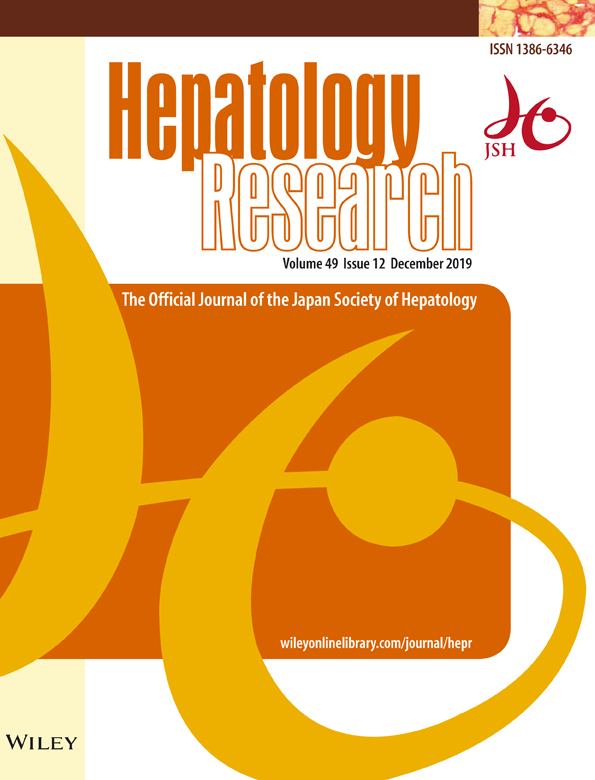Real-world effects of long-term rifaximin treatment for Japanese patients with hepatic encephalopathy
Abstract
Aim
Rifaximin (RFX) improves hepatic encephalopathy (HE). However, information on long-term treatment with RFX is limited. In this study, we aimed to investigate the effect of long-term treatment with RFX on HE and liver function. Moreover, we investigated factors associated with the recurrence of HE under RFX treatment.
Methods
In this retrospective cohort study, we consecutively enrolled 65 patients with HE who initiated RFX treatment (1200 mg/day) in our hospital from January 2017 to June 2018. We evaluated liver function test results, including blood ammonia levels, and the recurrence rate of HE after RFX treatment.
Results
The median follow-up duration was 41.6 weeks (range, 1.4–96.7 weeks). The blood ammonia level significantly declined from 157 to 86 μg/dL at 4 weeks after RFX treatment (P < 0.01), and the effect was prolonged. Furthermore, Child–Pugh score decreased in 51% (26/51) of the patients at 12 weeks during RFX treatment. The recurrence rate of HE after RFX treatment was 26.2% (17/65), and presence of ascites at baseline was identified as the only independent risk factor for HE recurrence (hazard ratio 4.71; 95% confidence interval, 1.27–17.5; P = 0.02). The cumulative recurrence rate of HE was significantly lower in patients without ascites than in patients with ascites at baseline (13.8% vs. 50.8%, P = 0.001).
Conclusions
Long-term treatment with RFX was beneficial for HE and liver function in patients with HE. Furthermore, the recurrence rate of HE was low in RFX-treated patients without ascites. Thus, long-term treatment with RFX could be effective for the management of Japanese patients with HE.




